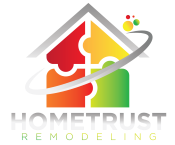What to Expect from a Maryland Home Energy Audit
 We hear about too many home energy audits that fall short on the overall customer experience. A home energy audit should be interactive and enlightening. It should uncover ways in which you can improve comfort, energy efficiency and indoor air quality and incorporate the best practices and techniques when planning new projects around the house. If you had an home energy audit or plan to get one, you should be able to identify with several if not all of the following take-aways:
These are all signs that you have had an excellent home energy audit in Maryland! Learn About Everyday Things in Your Home
It is no surprise that with today's "plug and play" culture, there are many things around the house that we assume are working properly. A home energy audit assesses the house as a complete system and it illuminates things that occupants of the home may not pay a lot of attention to, but they are actually quite important. A home energy audit will uncover this problem when it exists in a home. Often times, for very little investment, a problem like this can be fixed saving you ten times as much as you spend for the fix. Health & Safety TestingA home energy audit is great because not only does it help identify ways to save energy and evaluate indoor air quality but it also provides testing to help identify health or safety issues around a Maryland home. Gas Leakage Testing Take look at this detected and confirmed gas leak during a home energy audit in Maryland.
Look for the rising bubbles confirming there is a leak. Combustion Safety Combustion safety testing for gas fueled houses is a key benefit of a comprehensive home energy audit in the state of Maryland. The house is tested in the worst possible conditions so that the homeowner can feel comfortable and confident when using appliances during normal conditions. Additionally, a home energy auditor is checking for CO (Carbon Monoxide) on all floors of the home during the audit for any irregular readings as well as at the combustible appliances.
HVAC System InspectionAnother important part of a comprehensive home energy audit in Maryland is having the heating, ventilation and air conditioning (HVAC) inspected by a trained and certified building analyst. Properly identifying where the supply and return plenum are located in relation to the rest of the home are important in determining possible recommendations for improvements. Venting systems are visually assessed as other systems, such as the hot water heater are tested for proper ventilation and flue configuration. Ducts and chimneys are visually assessed for the correct pitch and for any holes or cracks in the ducts.. Prioritized repairs can be recommended if any of the tests performed yield less than passing results. Duct Leakage & Insulation
Thermal Boundary InvestigationA home energy audit will include a thorough investigation of the entire "envelope" of your Maryland home. This means that the auditor will inspect the insulation effectiveness in all of the areas around the home where insulation is required. During that process, ideas will be developed about cost effective ways to improve the situation wherever an opportunity presents. A highly trained auditor will appropriately describe the techniques in which improvements to the thermal boundary will be made. An energy auditor will also consider the whole-house approach to offering solutions including considering attic ventilation and what current system is in place, how the system could be improved and in some cases how the system can be integrated into the overall solution if none presently exists. Most homes have some form of a thermal boundary in place. Insulation usually exists in some form in all of the important places, however more than 50% of the homes in Maryland are insufficiently insulated. Air Barrier Assessment |
 Missing Air Barrier |  Proper Air Sealing |
|




















